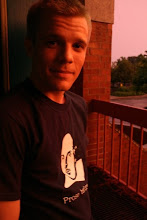Sep 15, 2009
What child of the 90’s didn’t own a copy of post-punk group Chumbawamba’s breakout record Tubthumper? The album with the purple baby on the front is a pop-culture artifact—an instantly recognizable record that was in virtually everyone’s collection, from pop-music junkies to indie kids, from alternative rockers to hardcore punks. There was only one problem with the album—it didn’t meet anyone’s expectations.
See, Chumbawamba became a household name upon the release of their single “Tubthumping,” the dance rock hit that spent 3 months at the top of the charts, not to mention in everyone’s heads. So beloved was the song, in fact, that millions rushed out to by this record from a band they’d never heard of, hoping to get more songs with the same catchy party-pop sensibilities.
Instead, they got album full of experimental oddities, spoken-word clips, strange instrumentation, and a lot of other stuff that was decidedly un-fun. “Tubthumping” was a fluke, or at least was completely unrepresentative of Chumbawamba’s art as a whole.
After reading actual air, I feel like I purchased Tubthumper all over again. It isn’t that it is a bad book—far from it—instead, it is an unexpected book, a book that sets itself up one way, and then goes in an entirely different direction, never to return.
I bought actual air because I had loved “Snow,” “Classic Water,” and “The Charm of 5:30,” three of the poems featured in Part I of the book. All three are straightforward narratives, sharp with insight and image, completely beautiful and absolutely touching.
Indeed, most of the poems in Part I can be described in this way. Although the three I had read before picking up actual air are still my favorites, poems like "Imagining Defeat" and "The Moon" stand out for their soft, charming quirkiness and unique turns of phrase. One sample line: “Then she brought something black up to her mouth / a plum I thought, but it was an asthma inhaler.”
It is in parts 2 and 3, however, that the book takes an odder, less-accessible turn. Multi-part poems that go on for 8 pages, loose associations that leave their poems anchorless, and an affinity for the crass (“We watched ‘motherfuckers’ crackle out of his mouth. / He wanted something. Something like a mini-mart blowjob.”) seem almost completely unrelated to the sweet, quiet poems that usher them in.
Even the subject matter in parts 2 and 3 is a vast contrast to that which is found in part 1. Part 1 features personal poems that seem at once intimate and universal. Parts 2 and 3 have got everything from anti-establishment to sci-fi. “The Night Nurse Essays” is even part murder mystery.
In all three parts, Berman makes it clear that he has a thing for sound. Even in some of the book’s worst poems, redemption is found in lines like “She wore a dress of voting booth curtains / to a party at the coroner’s split-level ranch.” Berman is the front man for a rock band called Silver Jews, and his rhythms carry over nicely into his poetry.
All in all, I can’t really say too much against this book. There aren’t any bad poems here, and, while the latter poems might not be as easy to emotionally connect with, it is hard not to get excited by Berman’s technique. No, the real problem with this book lies with the reader, namely me. I bought it expecting the confessional, the intimate, the emotionally vulnerable. What I got was a solid book of poems that has more to say than I could’ve thought possible. Despite the missed expectations, I wouldn’t hesitate to call Berman a great contemporary poet.
Which is more than I can say for anyone in Chumbawamba.
1 Comment:
-
- rachel said...
September 16, 2009 at 1:07 AMYay, David Berman!
